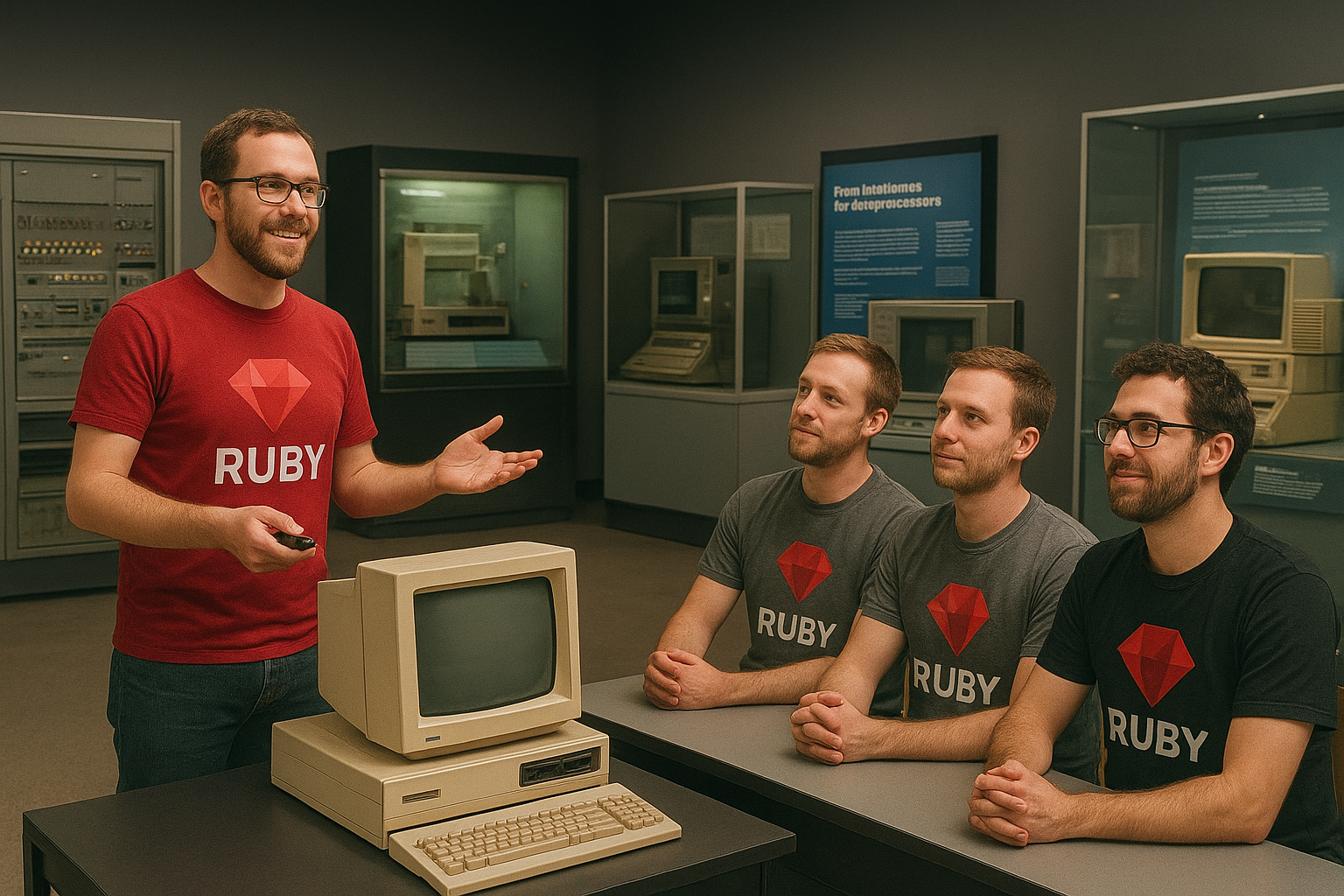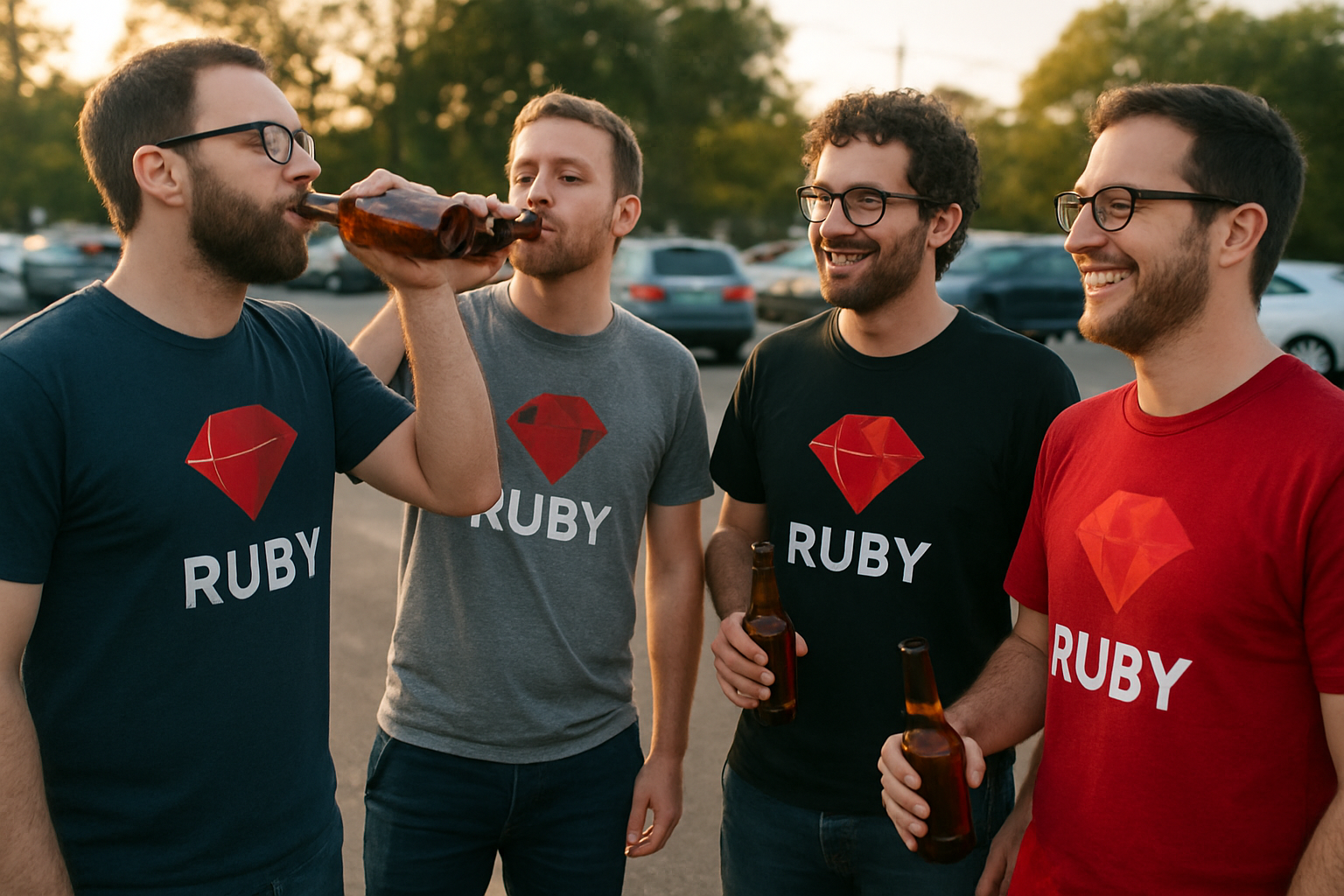Rubyists gathered once again at the Computer History Museum for our Summer Meetup, continuing the relaxed show-and-tell format with open-floor discussions that proved so successful at our previous gathering.
Jan Brdo kicked off the lightning talks by exploring the most significant updates in Spree’s latest major release. As a contributor to this leading open-source e-commerce platform built on Ruby on Rails, Brdo argued that the new version finally delivers a stable, competitive alternative to managed e-commerce solutions, a marked improvement over the buggy, unreliable releases of the past. He demonstrated this transformation through a real-world case study, igraj.si, a popular Slovenian board game store website that he developed entirely in Spree, showcasing the dramatic improvements in both features and performance.
Ines Panker presented intriguing findings from a recent study revealing that software engineers have the poorest project duration estimation skills among all tech company employees, which sparked animated reactions throughout the audience, ranging from nods and laughter to outright opposition. Martin Artnik took the stage to offer a counterpoint from his own experience, describing a project where engineers were the only ones with realistic timeline expectations while everyone else had completely unrealistic ones.
Once the controversy settled, Miha Rekar shared highlights from his recent trip to the Rails World 2025 conference in Amsterdam. Beyond DHH’s energizing keynote and the lavish after-party at the Museum of Street Art, Rekar found it difficult to choose favorite moments from such a rich event. He was among the conference’s lightning talk speakers, presenting an extended version of his Visualizer project that he had previously shared at our last Ruby meetup.
Krištof Črnivec, our meetup’s organizer, concluded the presentations with an exploration of his minimalist Linux setup, built with i3 and Nix, showcasing his commitment to a keyboard-only, terminal-based development workflow. Drawing inspiration from DHH’s recently released Omarchy — “an opinionated setup of the Arch Linux distribution and the Hyprland tiling window manager” — Črnivec shared his insights on the many advantages of tiling window managers, which he considers one of Linux’s most significant workflow benefits over macOS and Windows.
Since our usual post-meetup hangout spot, Kino Šiška, was occupied by a crowd of rock fans warming up for the venue’s anniversary concert, we retreated to the nearest parking lot. There we finished off the meetup’s complimentary beer — graciously donated by the kind souls from DevOpsDays Ljubljana — while sharing the remainder of the stories that shaped our summer days.


